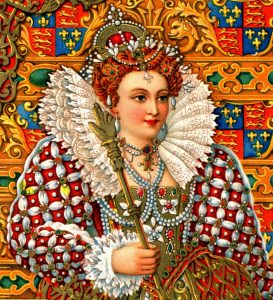The problem with inspirational women
I’m writing this on International Women’s day and lots of people are speaking about inspirational women. But I have a problem with that.

Great women do give us examples of what can be achieved, let’s face it, they are inspiring and I want to talk about them too, but at the same time I wonder if it’s enough and how much does it really help drive equality. Inspirational people show us what can be done, with effort, will, and hard work. We see how someone can beat the odds against all expectations and make a success where others thought they would fail and they are just so, so amazing.
We won’t all scale Everest
The problem is that these inspirational women can just stand out too much. Most of us don’t think of ourselves as exceptional people. We see ourselves as roughly average. There is stuff we excel at, stuff we are rubbish at, situations we are drawn to and others we avoid. When we select exceptional people to inspire us we don’t necessarily think “I can do that too”; we’re just aware that what they did can be done, probably by someone much more exceptional than ourselves. Just because we know Everest can be scaled, unless we are exceptionally driven climbers, we don’t expect to do it ourselves


Myths of the exceptional women
When we talk about women in computing we often start with people like Ada Lovelace; daughter of Lord Byron and a countless. Ada was also a mathematician and may often regard her as the first computer programmer. Many reference Grace Hopper who pioneered the ideas of machine-independent programming languages; ideas which led to the development of COBOL which is still in use today. Grace was by all accounts, quite a visionary and excellent communicator, and in my eyes deserves her place in history. Yet when we talk about these women it has a danger of perpetuating the myth of an industry belonging to ordinary men. We see it as one where women can break in if, and only if, they are exceptionally gifted, otherwise privileged or absolutely mind-blowingly determined.
Obscured realities
The reality is that when Grace was coming up with COBOL there were more women than men programming. Mary Lee Berners-Lee was just one of those.

Marie Hicks explains in her book Programmed Inequality how the British civil service at one time even restricted the role to women only.
When women were The Programmers they needed a high levels of maths skills and a meticulous attention to detail. Sadly many people thought it low skilled by the very proof that it was done by women. Other people thought the same about the women working at the car factory at Dagenham.
In other words, it was never that we, as a gender, had the wrong skills or aptitude. It was never that only a few magnificently talented inspirational women could code. It wasn’t then and it isn’t now.
An alternative solution

So how do we inspire women into tech? Who do we talk about when we move on from Ada and Grace? Perhaps we need to take a more “war memorial” approach, gather the names of all those who worked as programmers, operators, including those hidden under the title of typist and secretary. Start listing them as “The ordinary women who gave their working lives to tech”. Perhaps then young girls will understand that they can be an ordinary woman who just happens to work in software. Now that’s inspirational.
